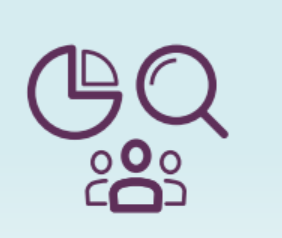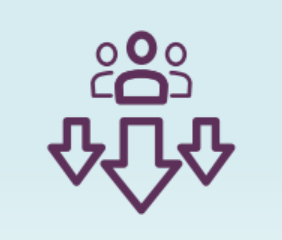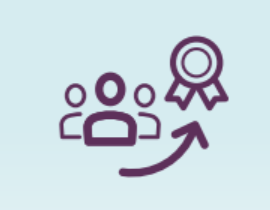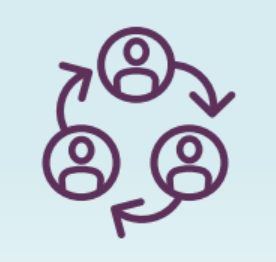Managing NHS workforces through the better use of data
Liaison Workforce is a well-established and trusted health economy partner, helping NHS clients tackle inefficiencies, streamline processes and support financial improvements through expert advisors, established technology and best practice process.

As part of their portfolio, Liaison Workforce offer people analytics to organisations to help them:
The technology behind this, illumin8HR, is developed by Activ8 intelligence, with over 15 years’ experience built in. illumin8HR gathers and analyses disparate HR related data, alerting HR professionals and people managers to timely, relevant insights that require action, helping uncover root causes and providing pathways to resolution. It is a white label product which Liaison Workforce has branded as People Analytics.
Like many NHS organisations, Stockport NHS Foundation Trust faced the challenge of triangulating multiple datasets to easily obtain meaningful workforce information, so commenced implementation of an advanced people analytics programme.
Working with the Liaison Workforce team over a period of two years, they have embarked on that journey, not only embedding a solution that makes people analytics accessible, but also educating and engaging leaders and people managers within the organisation on the role it can play in making more informed workforce decisions.
Now data is no longer overwhelmingly ‘everywhere’, and Liaison Workforce’s people analytics programme has cut through the noise to focus attention, resulting in hugely positive impacts for the workforce, and patients.




Liaison Workforce is a well-established and trusted health economy partner, helping NHS clients tackle inefficiencies, streamline processes and support financial improvements through expert advisors, established technology and best practice process.
The Challenge
Over the past ten years, Stockport NHS Foundation Trust has been working successfully to decrease their temporary worker spend via a tech-enabled in-house bank system which has enabled them to reduce their use of agencies for staffing requirements, whilst also improving visibility of overall spend, as set out within the NHS People Plan.
As a result of this improvement, the client realised they faced a significant challenge in triangulating various organisation datasets in use to easily obtain meaningful information relating to critical workforce issues, so they looked to also implement an advanced people analytics programme in 2019-2020 to help support and advance workforce management
efforts.
The client’s HR, Workforce and Finance colleagues were using various data systems which functioned in isolation, meaning there was a lack of communication between them, and they encountered repeated difficulties bringing relevant datasets together.
An example of such an issue was for their HR team to understand trends as they emerged for key workforce parameters such as sickness/absence. Due to the limitations of National Electronic Staff Records (ESR), they were unable to categorise absence data or present it in a meaningful format, and it was difficult to compliment with other data sources without carrying out extensive interrogation.
So, Stockport NHS Foundation Trust sought an appropriate solution to overcome this and improve data collection and analysis for all necessary parties across the organisation. At the time, they did not know how useful this project would become to monitoring the workforce during Covid-19, where the availability of accurate data had a major impact on services.
Following initial implementation of illumin8HR through Liaison Workforce for senior managers, the client also ensured that they supported and engaged their operational leads and the HR team, so they could also realise the benefits of the programme and ensure People Analytics was used across the organisation at all levels.
The Project Plan
In line with Stockport NHS Foundation Trust’s 2020 Improvement Plan, they took a pragmatic approach from the start, by entering information which was available. This allowed them to achieve some immediate ‘quick wins’, which helped to boost the overall analytics programme development throughout implementation.
They worked to ensure the right levels of data were available through People Analytics, following a set methodology which took the programme from initial discovery, to alignment with best practice and organisation culture – a focus which is very important to them – to implementation.
It was important to follow this methodology to iron out any potential issues before they occurred, and to make sure all voices were heard during the process. This was essential to ensure the organisation overcame any barriers to changes in collecting and analysing data using People Analytics.
Through People Analytics and this focused approach, the client was able to overcome cultural and technological barriers to collecting and analysing the data, and provide a single view of the data – allowing for better decision making, benefitting the organisation, workforce and patients.

The five key areas of focus:
1. Culture
Understanding organisation culture helped ensure the correct data sources were used to guarantee success and reduce ‘users’ anxiety’ around the change.
2. Collaboration
Ensuring collaboration across functions – HR,Recruitment, Learning/ Development, Finance and Operations – was essential to ensure needs were met for a fully-usable and useful analytics programme.
3. System thinking and delivery
A clear user-centric approach was high priority as many users do not have advanced analytical skills, so it was essential to use an analytics solution supporting their needs.
4. Enhanced agility
To ensure effective data/information flow, it was essential to look at user needs and tailor the solution, reducing unnecessary noise from an overload of data.
5. Optimise information
Using People Analytics, they focused on showing how information could lead to effective data-driven decisions.

The Approach
The client wanted to be able to forecast based on what was happening within the organisation in terms of workforce, in as real time as possible. They had been able to ‘look back at analysis’ in a siloed way previously, but wanted the ability to have automated support in understanding trends as they emerged.
The introduction of People Analytics enables the organisation to better understand a number of workforce-related challenges through the use of hard evidence, and not on an anecdotal or ‘gut feel’ basis.
- This approach represents an immediate reduction to the demand from across the organisation for the HR team to provide data for reporting around the organisation.
- It harnesses new and existing data sources to support the move to a multi-source environment for the delivery of Business Intelligence to users.
Stockport NHS Foundation Trust wanted to ensure the programme was beneficial not only to the senior leadership team, but also to operational teams – allowing them to obtain data and insights themselves without delay, and ensuring the reports they received contained a single version of the truth rather than potentially varying versions as a result of different data sources and platforms. As such, the organisation took the approach of engaging all senior stakeholders from the outset to obtain their input and needs, and fed this back to the programme partners to help with adoption of the system further down the line.

The Outcomes
Stockport NHS Foundation Trust’s Workforce team are now able to access reports faster and more easily, giving them more time to act rather than having to spend time generating the reports. As the programme also reduces time lag in producing the data, the organisation are further utilising this functionality not printing reports in advance for meetings, but using live data in meetings to ensure data is up to date and more useful. This is a culture change, and has real benefits going forward.
They have also found the ease of the system and ability to create real-time reporting has had benefits across the organisation. For example, their Assistant Chief Nurse currently uses the fully accessible analytics programme to generate statistics/ data for reports, without generating additional work with ad-hoc requests.
Advancing the 2020 Improvement Plan is key to the client’s decision making, with workforce being a focus area. Any changes they wanted to make had to be operationally beneficial to workforce and managers to see real adoption, use and benefit.
In conjunction with Liaison Workforce and through the use of People Analytics, they devised and implemented an engagement programme ensuring all systems and datasets talked to each other, obtaining usable data, which led to fantastic advances in identifying trends and making actionable decisions to support their workforce and positively impact patients.
The successful deployment of People Analytics and the programme has resulted in:
Consolidating 12 data sources from 4 systems
Greater visibility and time freed up to focus on improvement areas
Monthly reports available 10% earlier
Sharing trends and decisions with clinical management
100+ divisional users now interacting with workforce data
Future forecasting functionality, benefitting recruitment and retention
Automation of board reports
Triangulation of workforce and finance information, achieving best possible outcomes
Reduced reporting pressure on internal teams
Getting to the most impactful outcomes quickly, cutting through the noise.

The Insights
Using People Analytics, the organisation has been able to use technology to support the HR skills gap in how to provide actionable insights from the correlation and triangulation of workforce data.
The team also use the programme to identify trends from the workforce overview matrix to drive people to push forward with statutory/mandatory training. The system produces reports on teams with overdue training or who require assistance, which ensures a targeted approach to make direct improvements for the benefit of both staff and patients. Over the past twelve months, some of the key benefits of People Analytics has been:
- The ability to monitor the impact on the client’s workforce from the pandemic.
-
A dedicated sickness report tells them straight away those reporting stress and/or anxiety, highlighting differences between this and the previous year, and identifying the ages, job roles, etc, of those most at risk.
-
This allows the organisation to take direct action, focusing support, and allows for targeted Health and Wellbeing initiatives, which has been especially useful in the. aftermath of the pandemic.
- This has added huge value by providing managers with quantifiable insights that can justify decisions to support staff at times of great stress.
- Managers have also felt more empowered because of the programme, as they have been able to draw their own reports and act on them based on real time qualitative data.
- This is especially useful for training reports, and in showing which areas need additional development or support, and where to focus to ensure compliance in order to see overall improvements across the organisation.
- Data is no longer overwhelming and ‘everywhere’. People Analytics has cut through the noise and focused attention on key areas to enable action, which is ultimately showing a hugely positive impact on Stockport NHS Foundation Trust’s management, workforce, and patient care.

Business:
Stockport NHS Foundation Trust
Challenge
Working to decrease temporary worker spend via a tech-enabled in-house bank system
Solutions
People Analytics